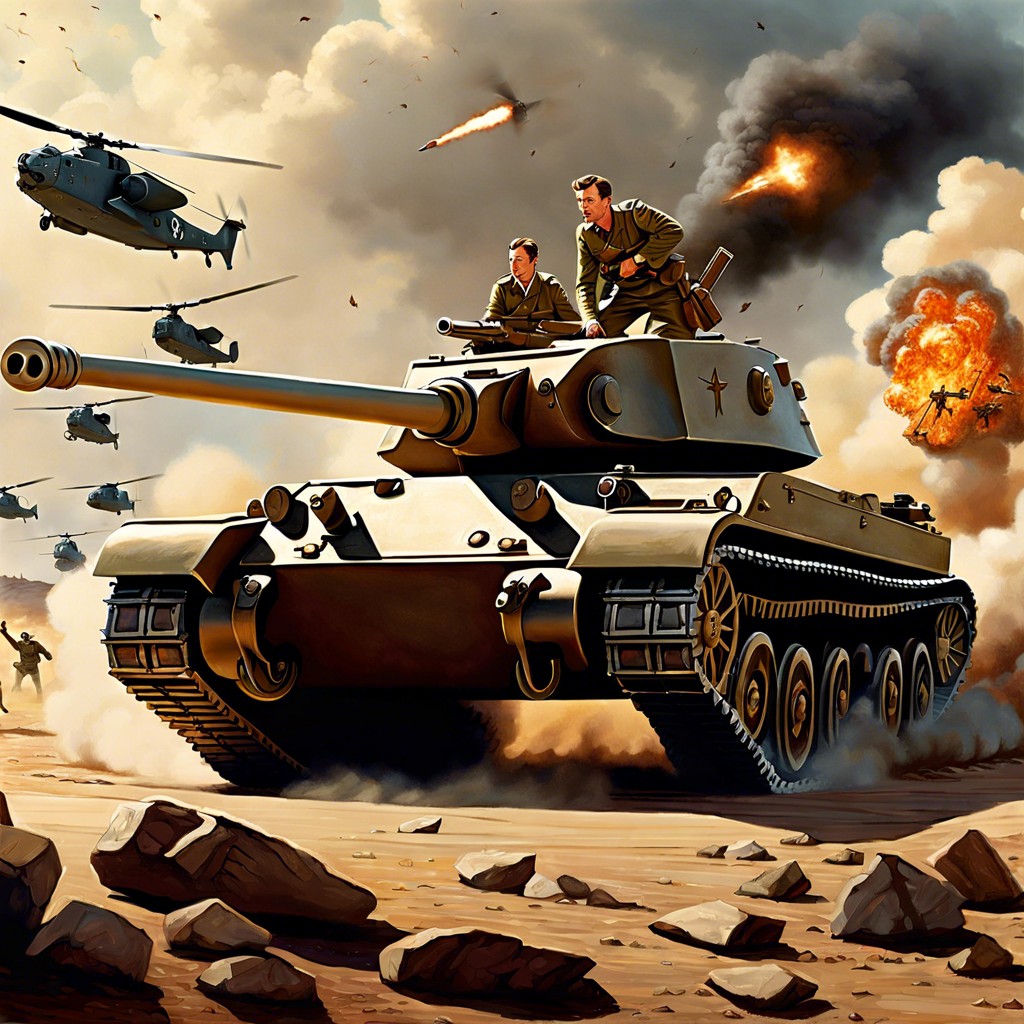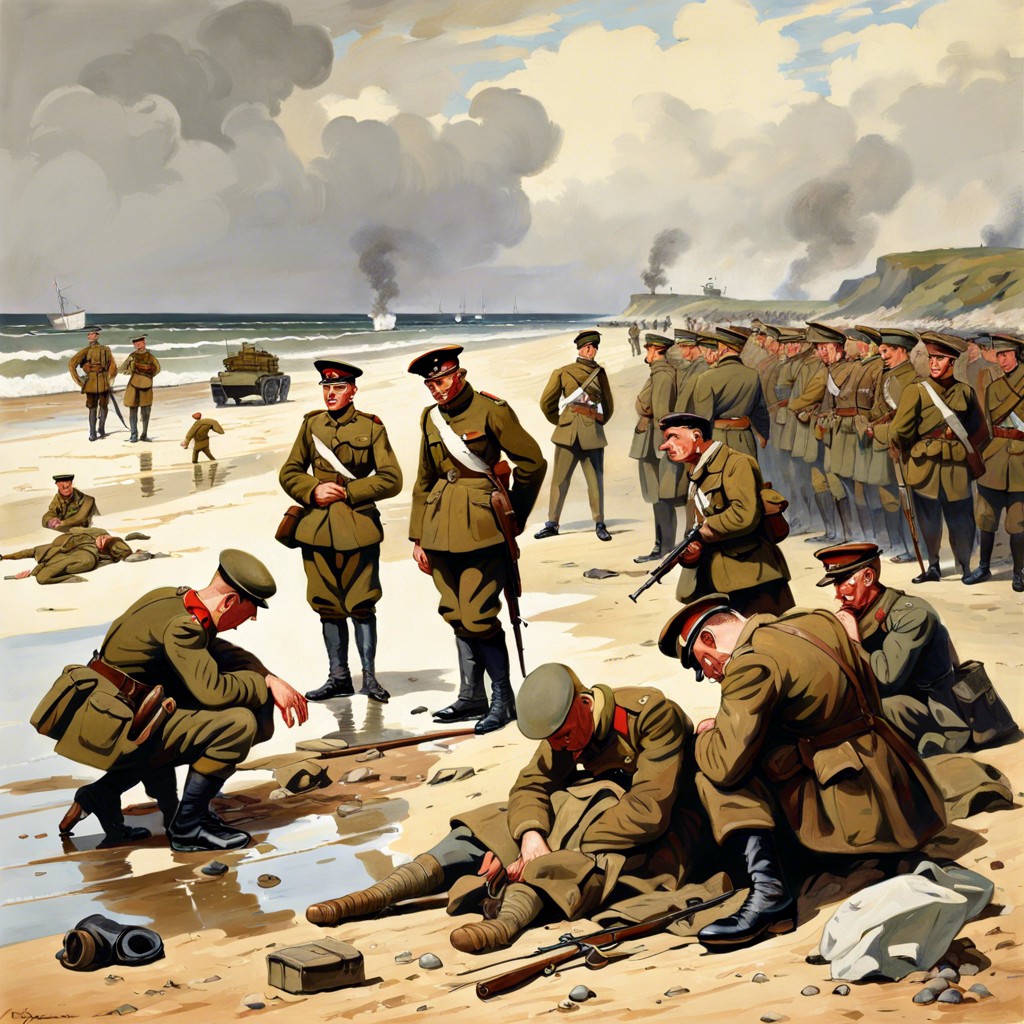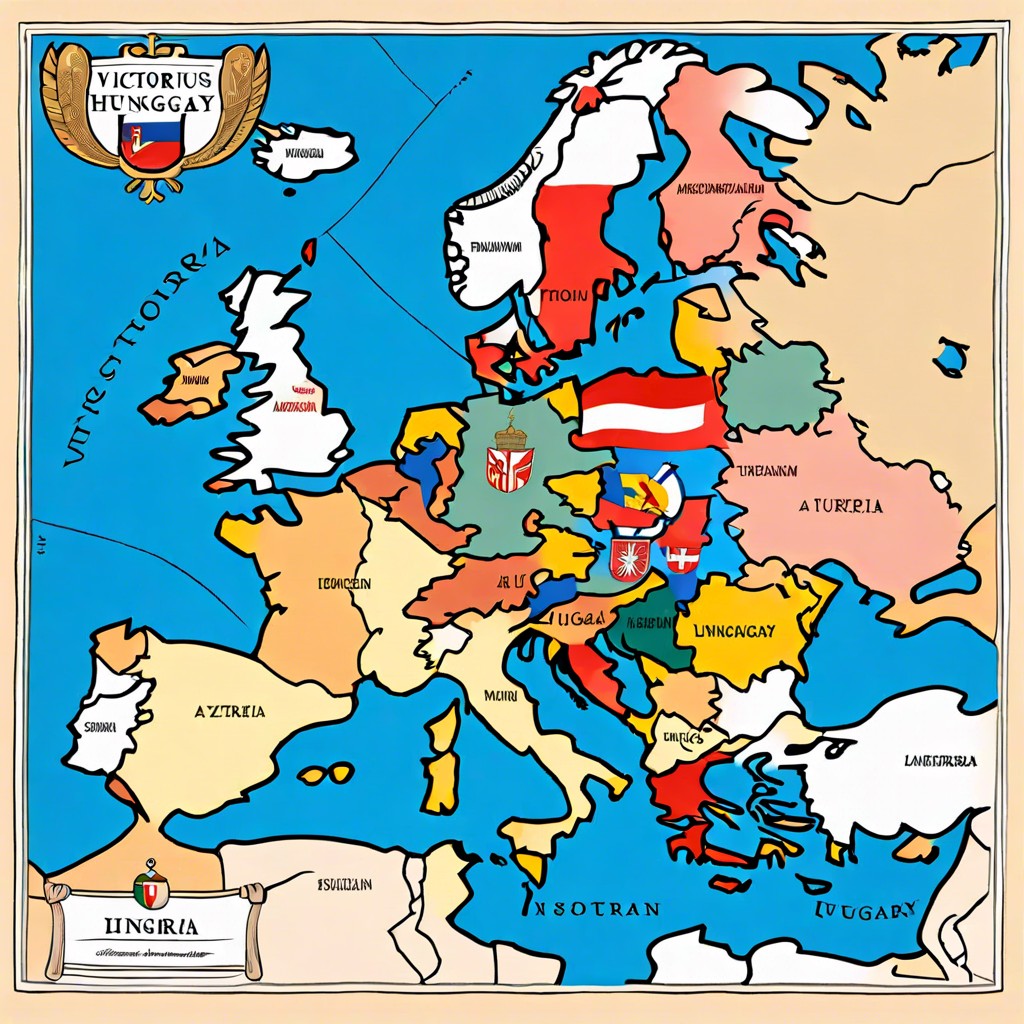Discover the massive global ramifications and altered historical landscape if Japan had never surrendered during World War II.
Imagine the chaos, the unending conflict, and a world teetering on a more volatile edge if Japan had never surrendered! With continued Allied military campaigns, a devastating impact on Japanese civilians, a Soviet invasion that could mean Tokyo with Russian billboards, and a radically different Asian geopolitical landscape, the history books would have spilled more ink and possibly, more blood. Stick around as we dive into this mind-bending alternate reality, where victory parades are far from over and the map of the world is anything but familiar. Buckle up; it’s going to be a wild ride!
Key takeaways:
- Continued war would amplify civilian suffering in Japan.
- Soviet invasion would create a two-front war nightmare.
- Geopolitical tensions would escalate, heating the Cold War.
- Economic reconstruction for Japan and Asia would stall.
- Asia’s post-war map would drastically shift in influence.
Continued Allied Military Campaigns

The Allies would likely have ramped up their military efforts, diverting additional resources to the Pacific theater. Air raids would intensify, making the skies above Japan darker than a goth’s wardrobe. Naval blockades would tighten, suffocating Japan’s supply lines and making sushi a rare delicacy, even for locals.
The prospect of a ground invasion would loom large. Operation Downfall, the planned invasion of Japan, wasn’t just a catchy name. It involved two massive campaigns: Operation Olympic and Operation Coronet. Think D-Day on steroids, but with a lot more bamboo and Mt. Fuji in the background.
Troop deployments would stretch Allied forces, with soldiers possibly facing guerrilla warfare in Japan’s challenging terrain. This wasn’t your average summer camp; the Allies would need heavy equipment and extensive planning to tackle the steep mountains and dense forests.
Amphibious landings would be another Herculean task. Storming Japan’s beaches wasn’t just about dodging bullets; they’d have to deal with relentless waves and rugged coastlines. We’d probably witness amphibious vehicles stalling out more often than a teenager learning stick shift.
All in all, the continued military campaigns would drive home the point—literally and metaphorically—that surrender was the more palatable option.
Impact On Japanese Civilian Population
Imagine a bustling Tokyo market, vibrant with life, suddenly shadowed by constant air raids. The extended war would have escalated such scenes to a grim reality. Resources, already scarce, would plummet further. Think food rations dwindling to almost non-existent, while makeshift shelters become the norm.
Healthcare? Practically non-existent. Hospitals overrun with casualties could mean even minor ailments turn deadly. The psychological toll? Off the charts. An entire generation bearing the scars of relentless fear and loss.
Children growing up under perpetual threat, education and innocence supplanted by survival. Daily life would mean adapting to war, not living beyond it. In short, the very fabric of Japanese society would warp, contort, and wither under the strain.
Soviet Invasion of Japan
Well, if Japan hadn’t waved the white flag when they did, the Soviets weren’t just sitting around twiddling their thumbs. Stalin had already set his sights on Japan after giving Nazi Germany a forceful shove off the world stage. Imagine Soviet troops landing on Japanese soil. Things would have gotten spicy, fast.
Firstly, the Soviets had already declared war on Japan in August 1945. They began rapidly advancing through Manchuria. And let’s not kid ourselves, the Soviet Red Army was an absolute bulldozer at this point.
Now, think about the logistics. Soviet forces would likely have invaded the northern parts of Japan, such as Hokkaido. This means Japan would face a two-front war: one side dealing with the Allies and the other with the Soviets. Talk about a bad day at the office.
Here’s a kicker—Moscow’s interest wasn’t just to flex military muscle. They aimed to secure influence in East Asia, negotiating from a position of strength at any post-war conference. Imagine Japan being torn, literally, between two superpowers. That would’ve shaped the region’s politics more dramatically than any soap opera plot!
And don’t forget the human angle: Soviet occupation wasn’t exactly a holiday in Siberia. It often came with harsh control and resource extraction, adding another layer of hardship on an already devastated population.
Consider that a tease for the geopolitical chess game and human drama that could’ve unfolded.
Long-term Geopolitical Consequences
Yikes, the butterfly effect on geopolitics would be monumental. Instead of becoming the tech-savvy, peaceful powerhouse we know today, Japan might have transformed into a prolonged battlefield. Global powers would scramble for control.
Firstly, the Cold War could heat up faster than a cup of instant ramen. With Japan as a contested zone, the U.S. and Soviet Union might’ve had a more direct face-off, making the Korean War look like a minor skirmish.
Next, imagine the delay in economic reconstruction for Japan and its neighbors. Europe had the Marshall Plan; Asia could’ve been stuck in recovery mode much longer, altering the global trade we take for granted.
Also, the rise of China as a dominant power might’ve shifted timelines. Without Japan stabilizing and contributing to regional balance, China’s path to prominence could be faster or bumpier.
Last but not least, the domino effect on smaller nations. Southeast Asian countries, already ripe for anti-colonial movements, might’ve seen more erratic, unpredictable independence movements.
Good grief, it makes today’s geopolitical spaghetti look like angel hair pasta!
Altered Post-War Landscape in Asia
The map of Asia would look like Picasso’s fever dream. A prolonged conflict could have led to multiple occupying forces, carving up territories like a Thanksgiving turkey. Japan might have fragmented under various zones of influence, with parts under Soviet control, others under American, and maybe even a British sliver just to keep things spicy.
Economic recovery for war-torn Asian countries would be like trying to shove a square peg through a round hole. Focus and resources swallowed up by continued warfare would mean industries would struggle to rebuild. Countries like China and Korea might have experienced delayed progress, stuck simmering in a pot of economic woes for far longer.
And let’s talk social upheaval. With Japan as a glowing ember of unresolved conflict, neighboring countries would be caught in the crossfire, leading to massive migrations and displacements. Picture a cocktail of cultures shaken, not stirred—sometimes resulting in fascinating blends, but more often in bitter clashes.
Don’t forget the domino effect on independence movements. Fewer resources to manage colonies might speed up independence for India and Southeast Asian nations. Such shifts could redraw the lines of influence, putting everyone on their toes like a cat in a room full of rocking chairs.




